Mice are some of the peskiest pests around. Not only can they bring parasites and diseases into your home, but they’re also notorious nibblers, chewing through wires, gnawing at furniture, and leaving havoc in their wake.
In short, mice are a problem, and there are a few different ways to deal with them, from chemical mice repellents to more natural mouse repellent solutions.
But before you reach for the mice repellent, take a look in your pantry.
Why? Well, you might find that some simple cooking ingredients could be enough to keep mice and rats at bay, purely because of the way they smell.
Cinnamon, peppermint, and chili powder are just a few examples, but there are plenty more aromatic spices and oils you can use for deterring mice.
Better still, this guide will reveal them all!
We’ll take a look at some of the most effective smells to repel mice, highlighting some handy kitchen staples you can use instead of mouse repellent spray or other mice control products.
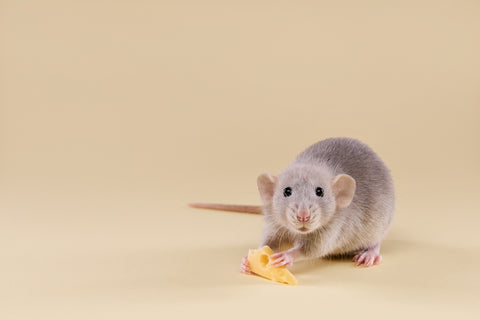
Why Do Certain Smells Work as Mice Repellent?
So, what exactly is it about mice and smells?
First of all, it’s worth noting that mice, like a lot of rodents, have pretty poor eyesight, but an exceptional sense of smell. In fact, they’ve got around 1,200 odor receptors – that’s almost four times as many as humans!
And mice use those mighty noses to sniff out food, danger, and everything in between. They can track the smell of snacks from great distances, and also detect the presence of other mice from miles away.
This is often how they find their way into our homes...
They sniff out crumbs and bits of food we leave lying around and sneak inside through cracks and gaps.
Then, once they’re in, it’s hard to make them leave, as they’ve got all the shelter, warmth, and food they need to survive.
But why is it that certain smells can be used as mouse traps? It’s quite simple, actually – mice use their highly-tuned noses to sniff out food that seems tasty and good to eat.
However, certain spicy or pungent smells are far less attractive and can bother their sensitive noses.
It’s just like with people – if you walk into a room with a nasty smell in the air, you’re less likely to stick around.
The same logic applies with mice. When they smell the likes of peppermint oil or cinnamon powder, they tend to stay away.
What’s more, researchers have found that some mice pass on odor sensitivities to their babies.
In other words, if a mouse really hates the smell of onions, its offspring are likely to feel the same way.
By deterring one mouse with the right smells, therefore, you can also keep future generations of mice away.
10+ Smells That Mice Hate and How to Use Them
If you want to know how to get rid of mice naturally with simple household ingredients, which ones should you use?
Here are 15 different smells that can work wonders when it comes to mouse-proofing your property.
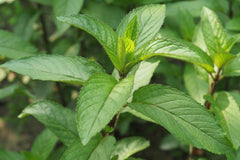
Peppermint
If you take a look at some of the best mice eliminator pouches on the market, you’ll notice that they almost always contain peppermint oil. And there’s a reason for that – mice absolutely hate the smell of peppermint.
In fact, mice aren’t the only ones. Peppermint is often used for keeping all sorts of other pests and bugs at bay.
It’s a powerful natural mouse repellent, with its strong smell sure to get up the nose of any little rodent that might be curious enough to sniff around your home.
The easiest way to work with peppermint is either in oil form, or in mice repellent bags.
You can place the bags in key areas around the property, or distribute the oil around windows and doors to make sure mice stay far away.
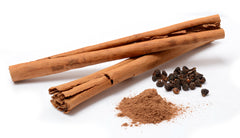
Cinnamon
Along with peppermint, cinnamon is often listed as an active ingredient in mouse repellent pouches and mice repellent spray. It may be a soothing smell for people, reminding us of pumpkin pie and fall leaves.
But for mice, the spicy smell of cinnamon is typically seen as a sign of danger.
Just like with peppermint, the rich smell of cinnamon is also effective for other types of pest control and home protection.
It’s brilliant for getting rid of ants, for example, and there are a few different ways to work with this spicy treat.
The easiest and cleanest option is to purchase mouse away packets with cinnamon and place them around your property.
Otherwise, you can try sprinkling some cinnamon powder beside windows and doors or even burn cinnamon sticks directly to release their smell around the house.
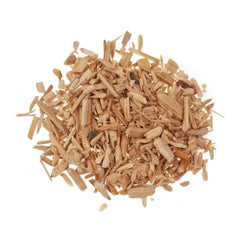
Cedarwood
The best mice repellent products often contain cedarwood.
It’s one of the most effective natural ingredients to include in mouse pouches, as it has a fantastic ability to irritate the nasal passages of these squeaky pests.
It’s believed that the high phenol content of cedarwood oil, coupled with the unique hydrocarbons and acids it emits, is the reason why it’s such an effective solution.
You can buy mice pouches with cedarwood to keep pests away, or dilute some oil with water and spray it around the home.
Soaking cotton balls in cedarwood oil and leaving them in strategic areas is another handy way to work with this powerful plant oil.

Vinegar
Ever walked into a room that stinks of vinegar? It’s a pretty overpowering smell, even for those with a strong constitution.
So imagine how it feels to a tiny mouse, with their super powered noses and sensitive odor receptors.
In short, it’s not nice.
Mice don’t like acidic smells in general, so vinegar is particularly off-putting for them. The only downside is that it’s also not the nicest smell for people, either, which can make it tricky to work with.
The best option is to dilute it with water and then spray it around. If you dilute it well enough, it shouldn’t be too noticeable by human noses, but will still be strong enough to bother any nearby mice.
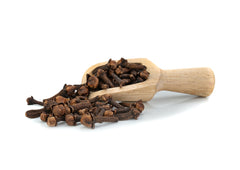
Cloves
Here’s another autumnal smell, just like cinnamon.
Spicy and aromatic, cloves give off a peculiar smell that many people like.
They’re often associated with relaxing tea blends, festive mulled wine, and warming curries.
Well, the smell of cloves might be lovely for you, but it’s a nightmare for mice!
They, along with other rodents, detest the spicy smell that these little buds give off, and you can use that to your advantage.
A good way to work with cloves is to actually sprinkle them beneath beds or in dark corners, where mice tend to lurk.
You can also soak some cotton balls in clove oil and leave them around, or get into the habit of brewing spicy teas and lattes on a regular basis.

Tea
Let’s keep the tea-theme rolling with another smell that mice hate: tea itself.
That’s right, standard black tea is a big no-no in the mouse world – interestingly, coffee doesn’t seem to be anywhere near as effective. So it seems like the average mouse definitely prefers a cup of joe to a traditional tea.
But how can you use tea for rodent control? Well, it’s important to use the right kind of tea.
Aromatic black tea is extremely effective, and green teas with mint will also work. You can also try any bags that include aforementioned ingredients like cloves or cinnamon, too.
Brew up some tea like normal, but don't toss away the bags. Instead, give them a little time to dry out and then place them around the home.
Alternatively, you could try sprinkling tea leaves near potential mouse entry-points.
Cayenne Pepper and Chili
Next up, we’re diving headfirst into spice town with two of the hottest ingredients in any kitchen cabinet: cayenne pepper and chili powder.
Often used interchangeably, these powerful powders can add a massive dose of heat to any dish.
Interestingly, mice aren’t big fans of spicy food. They really don’t seem to like the smell of either chili powder or cayenne pepper.
So, you could try sprinkling some of these peppery powders around windows, doors, and baseboards.
Eucalyptus
Plenty of people love the smell of eucalyptus oil. It has a soothing, calming quality. But mice don't feel the same way.
They find the odor a little too overpowering and tend to stay far away from any areas that smell of eucalyptus.
So, as long as you don’t mind the smell yourself, you might like to dilute some of this oil and spray it around the house.
A lot of the best mouse repellent products also contain eucalyptus oil, so look for packs and pouches to place around your home.

Citronella
Citronella is one of those ingredients that seem to work wonders on quite a wide range of pests.
It’s famously effective at backyard mosquito control, and can be equally effective as a source of rodent control, as well.
Perhaps it’s the fact that citronella tends to have such a strong smell which makes it so good at deterring mice.
Or maybe they just don't like citrus odors. Either way, it’s worth a try – spray some citronella around the home or light a citronella candle for best results.

Garlic
It’s no secret that garlic has a pretty pungent smell. It may taste great, but it often leaves people with breath that could burn through bank vaults.
And since mice tend to hate anything that smells too strong, they’re naturally not the biggest fans of garlic, with its intense, lingering aroma.
It’s believed that a key ingredient in garlic called allicin is what mice hate the most.
If you sprinkle garlic powder along walls and doors, you may drastically reduce the risk of a rodent infestation.
Lavender
Here’s another smell that is absolutely lovely for most people, but utterly despised by mice.
And, once again, it’s likely that the pure intensity of the lavender aroma is what makes mice hate it so much.
It gets right up their noses, irritating their receptors and making it tricky for them to sniff out anything else, like food or their fellow mice.
You can use lavender oil or even just plant some lavender around your garden to get best results from this purple plant.

Bleach
We’ve covered most of the natural smells that mice hate. Next, let’s take a look at a few chemical odors they simply can’t stand, starting off with bleach.
Bleach doesn’t smell nice to anyone. It’s dangerous, even in small doses, and mice can sense that danger from far away.
Even diluted bleach, sprayed around the house, can be enough to keep those pesky little critters from even thinking of entering your home.
Mothballs
Mothballs are usually used for dealing with moths. But they’re also useful as mice repellents, too.
Why? Well, those little balls are soaked in a chemical called naphthalene.
Naphthalene can not only irritate a mouse’s nose, it can even do damage to their tiny lungs if inhaled in large enough quantities.
So, as soon as mice get a sniff of mothballs, they tend to keep their distance.
Ammonia
Ammonia is another chemical smell that mice just can’t abide. It’s widely believed that this is because cat urine (along with the urine of other predators) tends to smell of ammonia.
Naturally, mice like to stay away from cats and anything else that might like to gobble them up. If they smell ammonia, they’re more likely to turn and run away than proceed any further.
You can dilute ammonia in water and spray it around key areas to protect your home.

Keep Mice Away with These Intense Aromas
As you can see, there are quite a few strong smells that mice simply can’t stand!
And, while some of them – like garlic and vinegar – aren’t exactly pleasant for people either, others – like peppermint and cinnamon – are perfectly fine for most people.
If you’ve been looking for natural ways to get rid of mice, the answer could be hiding in your kitchen cabinets.
Just a little powder or oil, placed with care, may be enough to prevent mice from entering your home or get rid of any unwanted guests that have already moved in.
If you’re worried about making a mess, consider Tougher Than Tom’s Mice Eliminator Pouches instead.
Packed full of three of the most effective natural mice repellents – peppermint, cinnamon, and cedarwood – these pouches are safe, natural, and exceptionally effective.


